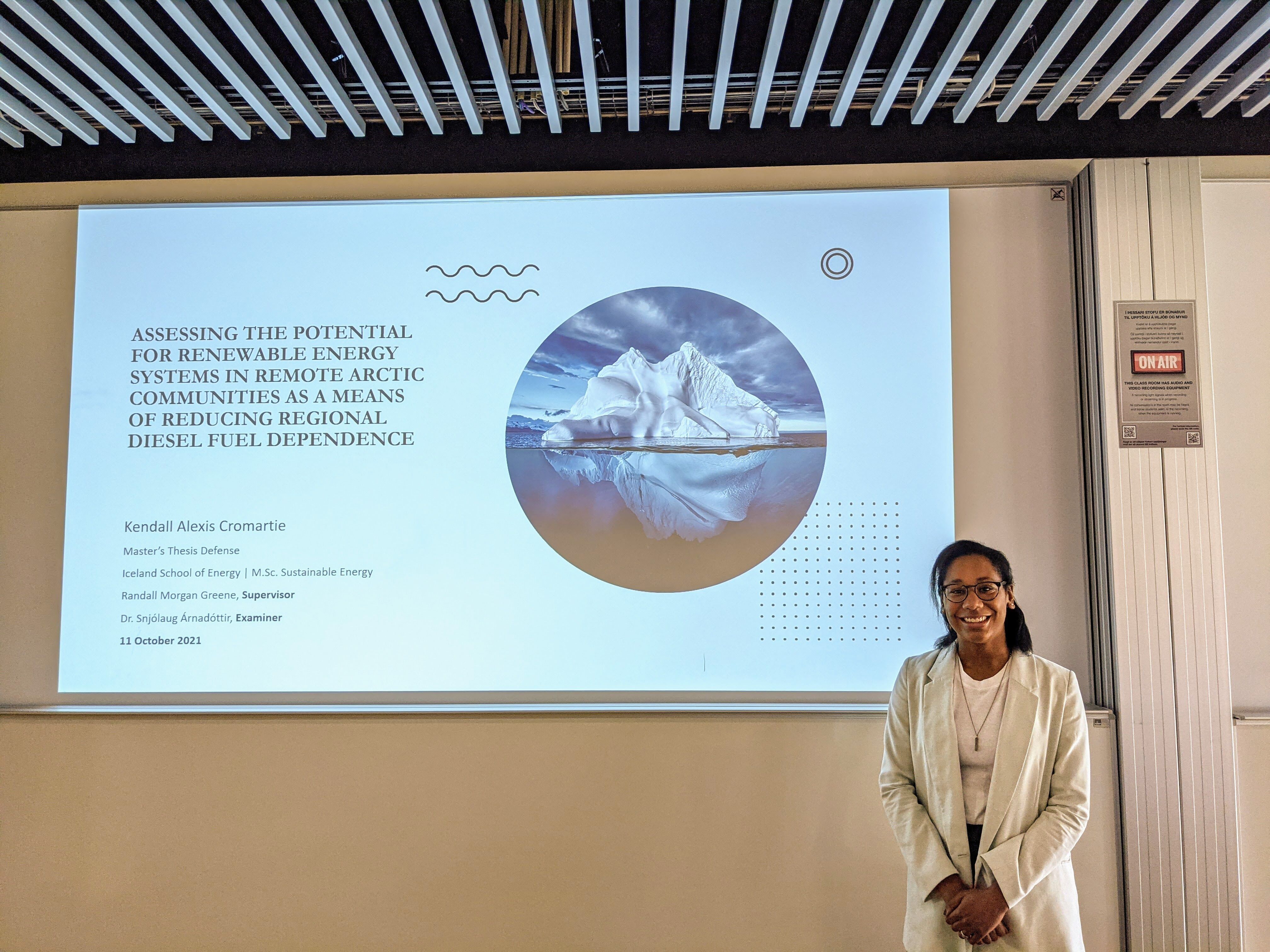MSc Thesis: Assessing the Potential for Renewable Energy Systems in Remote Arctic Communities as a Means of Reducing Regional Diesel Fuel Dependence
REYKJAVIK, October 11 - MSc in Sustainable Energy candidate, Kendall Alexis Cromartie , successfully defended her master's thesis where she assessed the potential for renewable energy systems in remote arctic communities as a means of reducing regional diesel fuel dependence. Kendall's work was supervised by R. Morgan Greene from Reykjavik University with examination by Dr. Snjólaug Árnadóttir from Reykjavik University.

Kendall began by explaining how the Arctic region faces many challenges related to combating the effects of climate change. Research has suggested that the region is overall more impacted by the rise in greenhouse gas emissions than other regions on Earth. More remote Arctic communities are dependent on fossil fuel sources, such as diesel fuel, due to their need for a reliable energy source and supply. The downside of which, she noted, was that energy sources like diesel fuel worsen the climate change situation both within the Arctic as well as globally.
Her research showed how climate models for years have shown how a feedback loop exists between the Arctic and the rest of the Earth's natural systems and balance. Therefore, a more sustainable and lower-emitting energy technology is needed to replace or significantly displace the diesel fuel use in parts of the Arctic region. This will be an important step towards decarbonising the region, which will add to the quality of life of the populations living in Arctic regions as well as contribute towards a more sustainable planet overall.
Kendall's study aims to best inform how to take this first step towards renewable energy technologies becoming more widely implemented in the Arctic, particularly in those remote communities which rely on diesel fuel. This was accomplished through a comprehensive investigation into the existing energy systems in the Arctic, focused solely on the Arctic areas of: Iceland, Norway, Greenland, Canada, Finland, and Sweden.
Through expert interviews, Kendall identified key barriers to utilizing renewables in the Arctic were identified and discussed. Following her investigation, a catalog of the current situation in the Arctic was created for use in future Arctic research into how to best implement renewables and to eventually reduce the use of diesel fuel. Interviews with energy industry experts and specialists were performed to better inform this final catalog. These expert interviews were conducted via an online survey sent to individual contacts by email, the data from which was analyzed and used to make the final determinations of this paper and to answer its research questions.
Kendall concluded by explaining that the results of both the initial investigation, catalog, and interviews show that the primary concern when planning to implement renewables in the Arctic is reliability, cost, policy and / or regulations, and the potential disturbance of natural areas. The interviews resulted in findings which mirrored the literature review, as well as which elaborated on and were an extension of the full barriers towards renewable energy implementation in the Arctic.
Congratulations Kendall for an excellent thesis defense!
